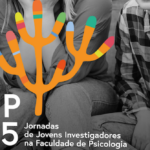Instructor: Prof. Falk Huettig (MPI for Psycholinguistics and FP-ULisboa)
In 1995 Mike Tanenhaus and his students at the University of Rochester (Tanenhaus et al., 1995) introduced a new method for the language sciences in the journal Science. The method, which became to be known as the visual world paradigm (Allopenna et al., 1998, henceforth VWP, cf. Cooper, 1974), had an enormous influence on several fields that study language (including linguistics, psychology, linguistic anthropology, neurobiology of language, etc.) but its impact has been most apparent in psycholinguistics. The VWP is used with a variety of participant populations of all ages, including special populations, to address the gamut of issues in language processing, ranging from use of fine-grained acoustic information in speech and language processing to how interlocutors make use of privileged and shared knowledge to communicate in collaborative tasks (Huettig et al., 2011, for a review). A particular strength of the paradigm is that it is well-suited to examine the time course of processing, as exploited by the eye-tracking technique. There is little doubt that the use of eye-tracking in the visual world paradigm has advanced our understanding of the processing of language referring to objects in the immediate environment of the language user and of language processing in general. The paradigm, as any method, however has also a few drawbacks. I will give an update on the pros and cons of using the VWP for language research.
Time: 1.30 pm to 5 pm | Venue: Faculdade de Psicologia, Tec. II room
Target audience: Researchers, PhD and Master students | Course language: English
Registration: To register, please send an email to Susana Araújo (smaraujo@psicologia.ulisboa.pt) by March 24.
This workshop is organized by CICPSI and supported by the Mind-Brain College.


